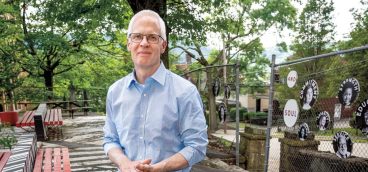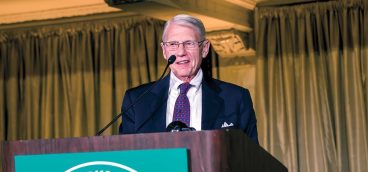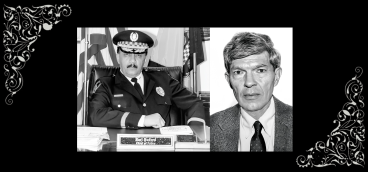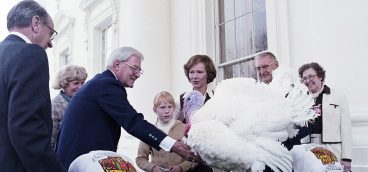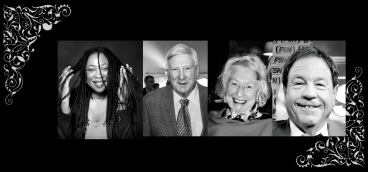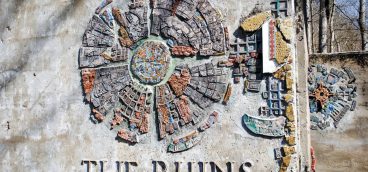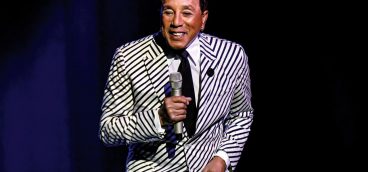“The Levy”

Maurice (pronounced Morris) Levy was a career-long math teacher in Pittsburgh schools. He was beloved for many reasons, including his sense of humor and his unusual way of addressing students. Rather than using their first names, he called each one “Mr.” or “Miss,” teaching his students lessons about respect they didn’t even know they were learning.
He was a strong supporter of the Pittsburgh Federation of Teachers and the union’s first-ever strike in 1968. Yet he feared that, with classes canceled, his upperclassmen in trig and calculus wouldn’t get key information they needed for the SAT and other tests. So Levy invited them to classes that he taught, on his own time, in space he wangled from a synagogue near Peabody High School. (I know this because I was one of those seniors lost in the maze of calculus.)
Dedicated as he was to teaching, Levy was just as passionate about music — music of all genres. He was a regular patron of the Carnegie Library Music, Film & Audio Department in Oakland. Kathryn Logan, retired head of the department, remembers that as his career wound down, Levy was looking for a way to pursue his love of music, teaching and Pittsburgh in one fell swoop.
“I was sitting outside in front of the library one lovely afternoon,” Logan recalls, “and Maurice came up to me and said, ‘I have just told my principal I’m retiring, so I want to volunteer for you.’ He clearly was wanting something with more grit to it.”
Together, the duo hatched a project that Levy could pursue — an oral history of music in Pittsburgh, something never before tried. They jotted down the names of 15 or 20 people that Levy might contact and interview.
“It was like a joint venture,” says Joelle Killebrew, music librarian for the department, who was witness to the creation. “Maurice had used the resources of the music department his whole life. He came to Kathie and said, ‘What could I do?’ They discussed this oral history project, and then Maurice just made it his own.”
Did he ever. Between 1991 and 2005, Levy interviewed more than 300 local celebrities and pioneers, capturing about five decades of music in Pittsburgh. The actual number of interviews is 326; the music department added some, conducted by people other than Levy, that had been produced for other projects.
According to Levy’s daughter, Debbie Levy-McKenney, a retired math instructor who lives in Squirrel Hill, her dad recognized how ambitious the project was and took a course in oral history to prepare for it. He also compiled a smaller oral history of Congregation Rodef Shalom, which served to sharpen his interviewing skills.
“There were a few people who may have refused his interview requests, others who weren’t open to discussing the subjects he was asking about,” she says. “It was a huge amount of work — not just the interviews but also setting them up and getting there.”
The result is formally known as the Maurice Levy Oral History of Music in Pittsburgh Collection (OHMP), a massive, astonishing, utterly unique look at music in Pittsburgh. And these were not drive-by dalliances, as Levy recorded at least an hour with most subjects. The Levy covers all the genres you would expect — classical, opera, gospel, jazz — but there are plenty of wonderful surprises. Want to know about barbershop quartet music in Pittsburgh? Bagpipe music? Listen to the interviews with Walter Eibeck and James McIntosh, respectively, and you’ll learn of the region’s role in these niches.
The Levy pays homage to the three major universities — Pitt, Carnegie Mellon, Duquesne — with interviews of many of their department heads and professors, including Dr. Nathan Davis, founder of Pitt’s Jazz Studies Program. Ethnic music is heavily represented. Levy estimated that he interviewed practitioners, administrators and experts in the music of at least 20 different ethnicities.
Levy sat down with many prominent, influential performers, such as legendary disc jockey Porky Chedwick; Vince Lascheid, organist for the Pirates and the Penguins; jazz guitarist and educator Joe Negri; folk singer/composer Anne Feeney; and jazz pianist Johnny Costa. Most of these stars are gone now, so having them available on tape discussing their lives and careers is even more valuable.
The collection includes journalists such as Scott Mervis, current music writer for the Pittsburgh Post-Gazette, and the former music critics Carl Apone, Frank Bolden and Robert Croan. Finally, Levy paid attention to the business of music, catching up with such luminaries as nightclub owner Lenny Litman, and Nick Lomakin and Walter Volkwein, proprietors of Pittsburgh’s two most iconic music stores.
The picture that emerges from the Levy is a region positively pulsating with musical diversity, innovation and joy.
Yet for all its wonders, the Levy has been underutilized due to a pair of shortcomings that have nothing to do with the oral histories themselves. The first is limited access. Currently, you can listen to the Levy only by physically visiting the music department, where it’s housed. The library has tried to keep pace with technology advances. For example, it converted Levy’s tapes to CDs that allow for easier navigation. Still, if you’re a researcher or music lover from Ohio, say, you must travel to Oakland to enjoy the Levy, an inconvenience and potential deal-breaker.
In addition, while the library has assembled files for each interview that include such items as newspaper clippings about the subjects, in all but a few cases, there are no written transcripts of the interviews.
“Before the pandemic, usage was higher than it is now,” reports Julie Hanify, library services manager for the music department. “Somebody would come in about once a month. Since the pandemic, a few people have come in and listened extensively. It’s not as well known as we would love it to be.”
All that is about to change. In partnership with Historic Pittsburgh and Preservation Technologies, and with financial support from Friends of the Music Library, the department has undertaken an initiative to address both shortcomings. When it’s completed, which Hanify hopes will happen in 2024, anyone will be able to stream the Levy from any computer anywhere, and transcripts of all interviews will be available.
“It seems like the next logical step for access. It would enhance accessibility so much to have the interviews digitized. But it is a huge, daunting project,” Hanify says.
Everything about the compilation and upgrading of the Levy is huge. Levy died in 2016, but in 1998, Logan turned the tables on him, taping his thoughts about the legacy he was leaving. In that interview, which is part of the collection, Logan asked him what he hoped to accomplish with the project.
“The purpose, of course, at the beginning, was the history of music in Pittsburgh,” Levy responded. “But the history of music, you’re talking about the history of Pittsburgh.”
Here is a sampler of the gems of Pittsburgh history discovered by Maurice Levy:
“I was, like, the mentor, the creator, the inventor of what they call “oldie-but-goodies” records, old records which never did get a chance of being played. I would play them as new records. … New records really meant nothing to my radio concept. If I played new records, I wasn’t accepted as much. I was weakening my format. I created a major concept of records which were never heard in the country, probably — definitely never heard in Pittsburgh.”
— The late George Jacob “Porky” Chedwick who, from his base at WAMO-AM and thousands of appearances at record hops, became the region’s most influential disc jockey, lovingly known as “Pork the Tork,” “Your Platter-Pushin’ Papa” and “The Daddio of the Raddio.”
“I performed in every media you could name but movies — carnivals … tent shows, houses of prostitution… . I was called ‘The Jazz Edutainer’ by my peers. I worked with Sonny Stitt and Gene Ammons and Louis Prima and Stan Getz, so I had the authority from living it. It was a profession where an artist could enjoy what he was doing and be paid for it… .
“I know deep in my heart that I could do everything Sammy Davis, Jr. could do at that time. But Redd Foxx said, ‘The quota is filled. We already got one of those.’ And how could I go up against the mighty, like Frank Sinatra, supporting him? But every time I would work one of those fraternal clubs — the Elks, the Moose, the Sons & Daughters of Italy, the Ukrainian Society, the Polish Falcons — they would tell me, ‘Why aren’t you on television? We think you’re as good as Nipsy Russell, Sammy Davis, Jr. or Dick Gregory.’ … But I never was in the right place at the right time. The only thing I got was a soul full of enjoyment. … But I shouldn’t be living in squalor like I am in my senior years. … I’m a benign-neglected treasure.”
— The late Thomas “Saxie” Williams, jazz tap artist and WYEP radio personality.
“I rather liked the Syria Mosque. I’m so sorry to see it gone. … My reminiscence of that was that the stage was so wide and shallow, but so wide. [For Carmen], the stage was always usually set the same in the second act with a table and chair on the left, and a table and chair on the right. Well, I was so worn out after the second act trying to find Don Jose on the other side of the stage… .
“After three years as a full-time performer and ‘First Lady,’ I did collapse, had a nervous breakdown. It was at this time that I decided what was really the most important. And I realized that I wouldn’t be singing forever, and if the university wanted us forever, I’d be here. So I very consciously arranged the university events so that they would not crowd out my singing career, so that I wouldn’t come from a reception of 200-300 and go off and try to sing a concert. It’s just not possible and I found out the hard way. … That week, I’ll never forget it. It’s such a state of collapse. [I] had three performances, and it was way out West. I missed an airplane because my mind was just not functioning.”
— Mildred Miller Posvar, Metropolitan Opera mezzo-soprano for 24 years and wife of the late Wesley W. Posvar, chancellor (later president) of the University of Pittsburgh and thus, as she notes, Pitt’s “First Lady.”
“Every member of the society is able to sing 13 basic songs so that no matter where you go in the country, you can get three other voices and sing one of those songs in harmony. … My Wild Irish Rose is one of those 13 songs… .
“The baritone part is the tough part. We call that the ‘bastard’ part. That’s the note that’s always left. The lead gets the lead melody and the bass, he gets the boom-boom-boom-boom, and the tenor usually harmonizes. So that baritone part is above the lead and below the lead. … He floats around.”
— The late Walter Eibeck, who sang lead — not baritone, thank goodness — for the Circle W Four, a barbershop quartet that performed locally and, through its affiliation with the Society for the Preservation and Encouragement of Barbershop Quartet Singing in America, was a fixture on USO tours. Eibeck did all this while pursuing his day job as a bricklayer.
“One visiting player came to bat, and what his name was I just can’t remember, but it reminded me of a song title. So when they announced him, I played that little song. I got a few little snickers. So I kind of went down the line-ups to see if there were any more I could associate with a song. I know a lot of songs; I have a good repertoire in that respect. For example, Howard Johnson with the Mets, I started playing Small Hotel. People all of a sudden said, ‘Why don’t you play such-and-such song for Whatshisname?’ So I started picking people’s brains, and I started getting ideas. That’s how the whole thing evolved.
“I only had about one or two complaints out of all the years I’ve been doing it. One of them was with Johnny Bench with the Reds. When he was in the twilight of his career, I played Catch A Falling Star. He wasn’t too happy about that, and I was told by the PR guy. And also from Steve Garvey of the Los Angeles Dodgers. He did some modeling out there, and so I would play, Here She Is, Miss America. That, for some reason, didn’t go over too well. I switched to Isn’t She Lovely.”
— The late Vince Lascheid, longtime organist for the Pittsburgh Pirates and the Pittsburgh Penguins, well known for the creative walk-up music he played to introduce batters.
“I can’t say that I’ve ever been a victim of racial discrimination as a member of the Pittsburgh Symphony. … I think if my colleagues react negatively to me, it’s because of my prickly personality and not because of the color of my skin. I must say that I feel as if I carry a certain burden, or weight, or responsibility on my shoulders. … When I’m on that stage, I am not representing just myself. I suppose it’s taken me many years to dispel the idea that if I make a mistake that people will think, well, she’s black; she can’t do any better than that.
“I think that the people in the city of Pittsburgh now are convinced that I — even though there was an affirmative action factor in my being hired by the Pittsburgh Symphony — have stayed there so long because I do my job well, because I’m highly qualified. In fact, I’m probably considered one of the best orchestral keyboard players in the country. … But you always know that you’re being judged just a little differently.”
— Patricia Prattis Jennings, retired principal keyboardist for the Pittsburgh Symphony, who is considered the first African-American woman to earn a contract with an American national symphony.



